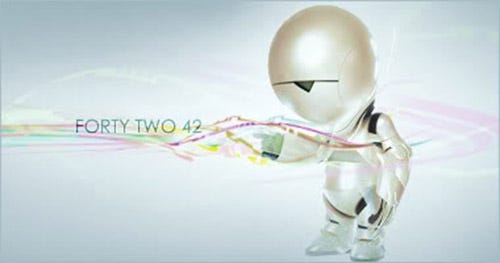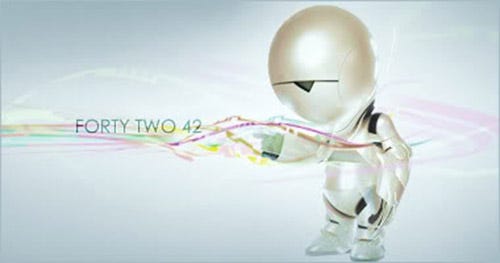42 or the fairness of life

I was asked in a discussion group: “Is life fair?” My answer was 42.
What else could it be? What else should it be? What is the question? What is life and what is fairness? Are we talking about life in a universal sense as in ‘life on earth’ or about the vagaries of the life of individuals?
What is fairness? Considering its dictionary definition: “impartial and just treatment or behavior without favoritism or discrimination”, it makes little sense to pair it with the word ‘life’. “Impartial and just treatment” implies a ‘treater’ which life is clearly not. We could ask whether the creator is ‘fair’, but that would not be a fair question, because in this context the ‘creator’ is just a substitute for ‘life’. Since the ways of the Lord are inscrutable, the answer is both yes and no. The fairness of the Lord is axiomatic, while the reasons for any particular manifestation cannot be understood by mere humans.
Let’s suppose that we can define ‘life’ as the manifestation of the rules of evolution. In that case, everything in life is ‘fair’ as it ultimately serves the purpose of evolution. Even pure chance or any random event should be considered ‘fair;’ as they serve the greater purpose, the challenge to survive.
Is it ‘fair’ that eagles have better vision than moles? Or that monkeys can jump and elephants cannot? Is it unfair for the rabbit if the fox gets it or is it unfair for the fox if he doesn’t? These are clearly ridiculous questions. Is it fair if your vision is better than mine? Or that your hearing is worse? Again, ridiculous questions.
Unfortunately, the question does not seem ridiculous at all to a whole generation (or two, by now) that grew up steeped in cultural Marxist ideology, where the criteria of ‘fairness’ is equal outcome. Where there are no innate differences. Where everybody wins. Where everything is a zero-sum game, where anyone’s gain must come at someone else’s expense. Where anything we don’t like can be blamed on somebody else.
On the one hand, Life is not fair. Life is not a conscious actor that sets rules. Life is not a person, it does not think, it has no will. Life just is. It hands out good and bad with an even-handed randomness.
On the other hand, life is very fair. It tends to reward us for our good decisions and punish us for the bad ones with remarkable consistency. It sometimes sends us a warning not to become too self-confident and cocky. Sometimes it humbles us. Strangely, with an even-handed consistency.
The doctor who identified the Covid-19 virus in Wuhan, died. Is that ‘fair’? According to what set of rules? Who should be blamed? An even better example would be Terry Fox. He had a real bum luck. On the other hand, he is a genuine hero, a real role model for generations to come. Life threw seemingly unsurmountable challenges in his way which he overcame with an incredible spirit. He was rewarded by warm support and posthumous celebrity. What is greater? His bad luck or the well-deserved recognition he got for the way he handled it?
What is clearly unfair, is the claim that life isn’t fair when it throws something in our way that we are not able, ready or willing to handle. That our neighbour has something we don’t. That someone is prettier, smarter or luckier that we are.
What is unfair, is to expect some sort of compensation for the perceived lack of ‘fairness’ of life. What is unfair, is blaming life (or others) for the (very appropriate) consequences of our bad decisions. What is even worse, is to claim that the just rewards of the good decisions and hard work of others are the cause of our lacking of the same rewards.
What is unfair is that we live in a world where the above needs to be said.


